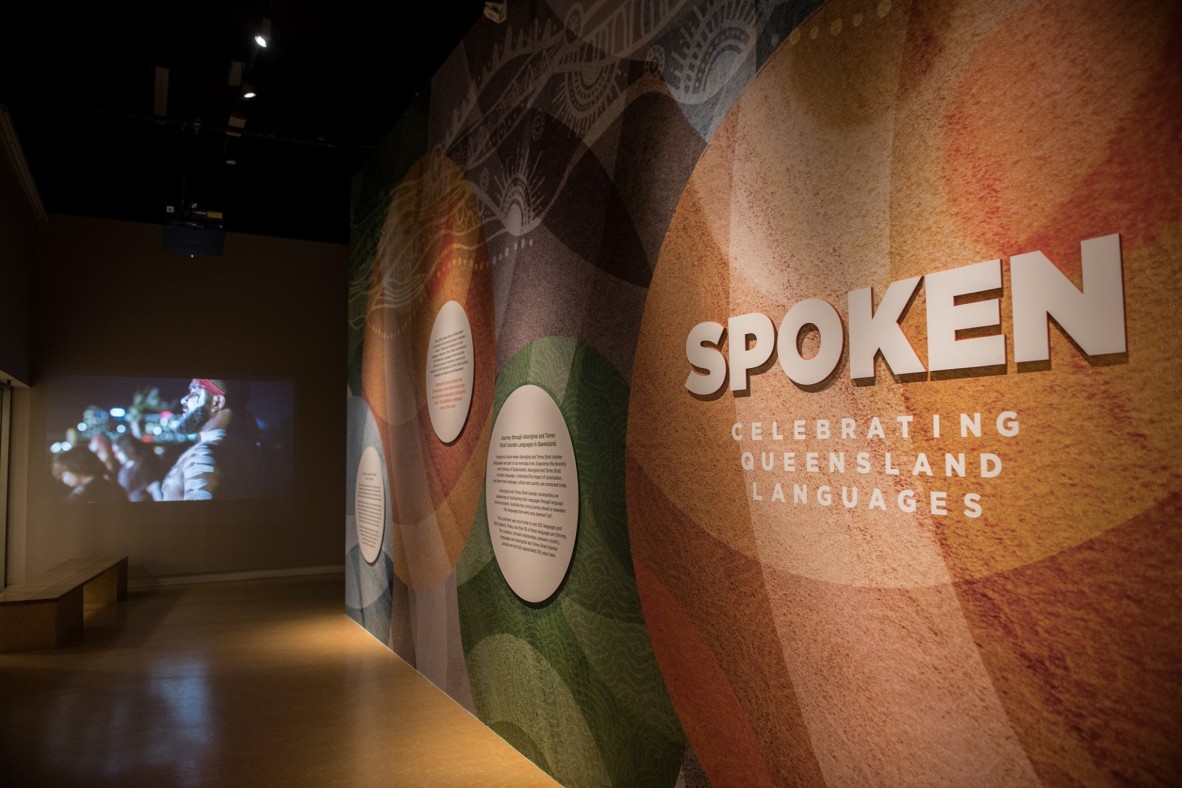
On Wednesday evening, approximately 150 guests celebrated the official opening of Spoken: celebrating Queensland languages on the Queensland Terrace. The exhibition is part of State Library's commitment to the 2019 International Year of Indigenous Languages.
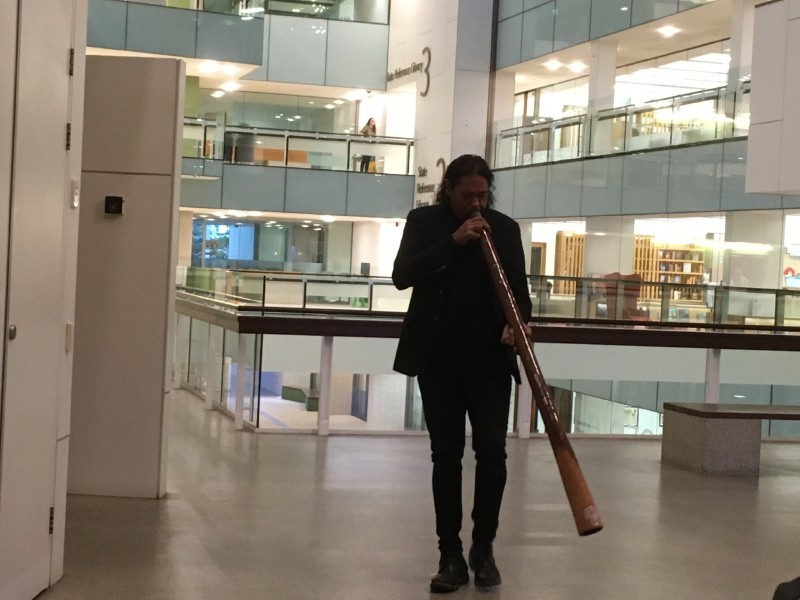
William Barton kicked off the proceedings with an amazing display on the Yirdaki before MC Stephen Oliver came to the microphone for the formalities. Speeches from Minister Enoch and Vicki McDonald highlighted personal language journeys and the amazing collection items within the exhibition. The stories from community round out the exhibition and provide a culture context and meaning to the 'words on the page'.
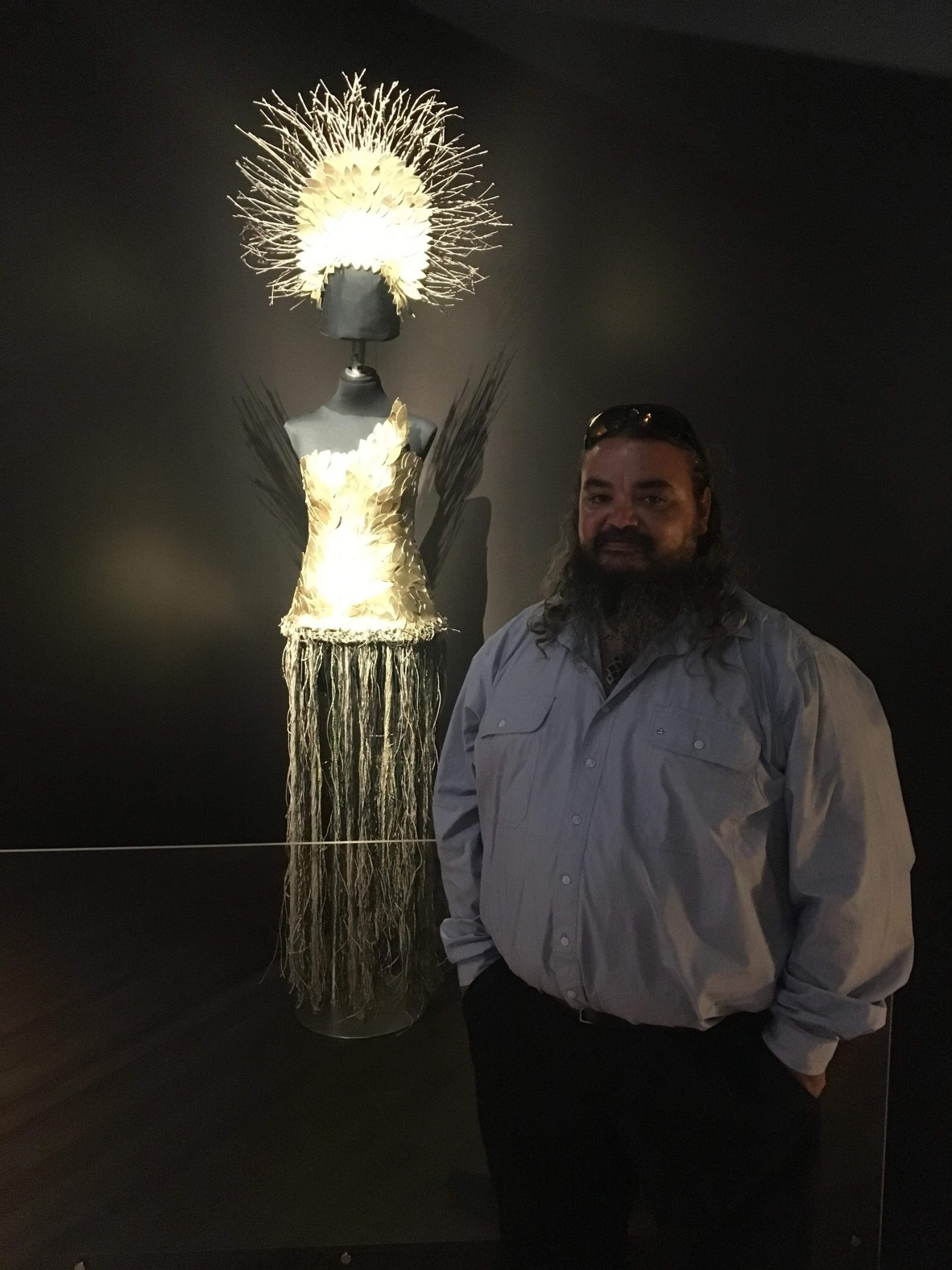
Several of the community contributors were in attendance on the night while others watched on the livestream. It was great to see Aunty Irene , Darryl and Carmen , Noel and Deb on the night. Darryl is shown above with the incredible Sun Woman Dress which drew lots of attention on the night!
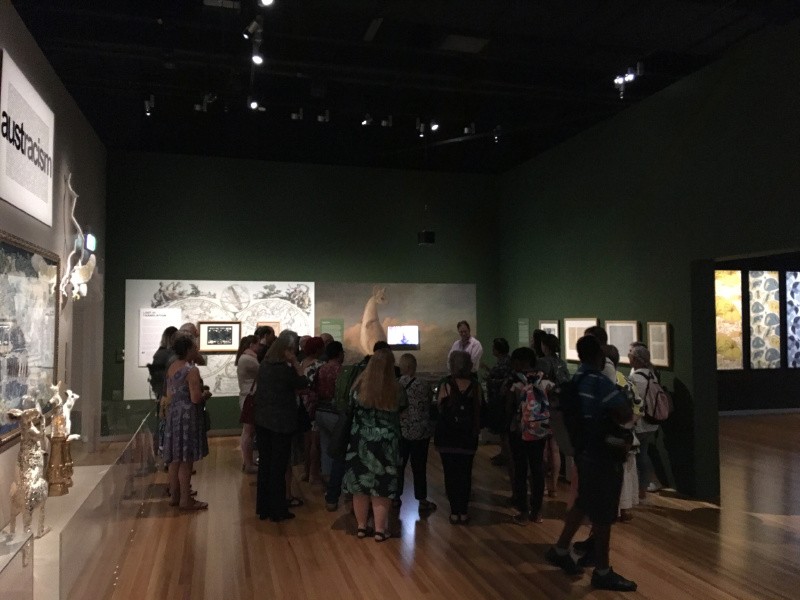
After the formalities, guests were able to view the exhibition at their leisure. It was a wonderful evening of celebration of languages as well as a time for reflection on the fragile nature of languages. The exhibition provides an overview of Queensland Aboriginal and Torres Strait Islander languages with a deep dive into several languages including Kala Lagaw Ya, Meriam Mir, Wik Mungkan, Yuwibara, Yarluyandi, Wangkangurru, Bidjara and Yugambeh. Spoken features 55 Aboriginal and Torres Strait Islander languages from across Queensland!
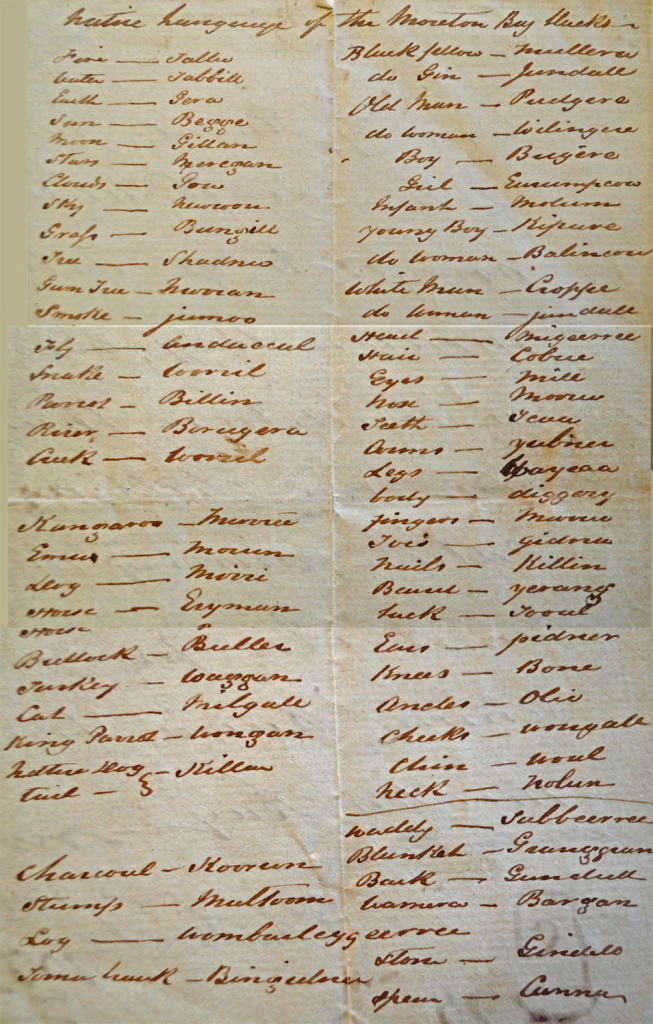
Languages of South-East Queensland, including Yuggera, Yugarabul, Wakka Wakka and Gubbi Gubbi are also showcased with some early collection items from the 1840's including the above word list collected in 1842! The F J Watson materials include his 1944 work “Vocabularies of four representative tribes of South Eastern Queensland”. Other significant material include the Cook HMS Endeavour Journal, Harriet Barlow Manuscript (1865), Archibald Meston Papers and the William Ridley Notebook (1855). A handwritten letter in Guugu Yimithirr language by Magdalen Mulun of Cape Bedford (1899) represents the first written form of a Queensland Aboriginal language!
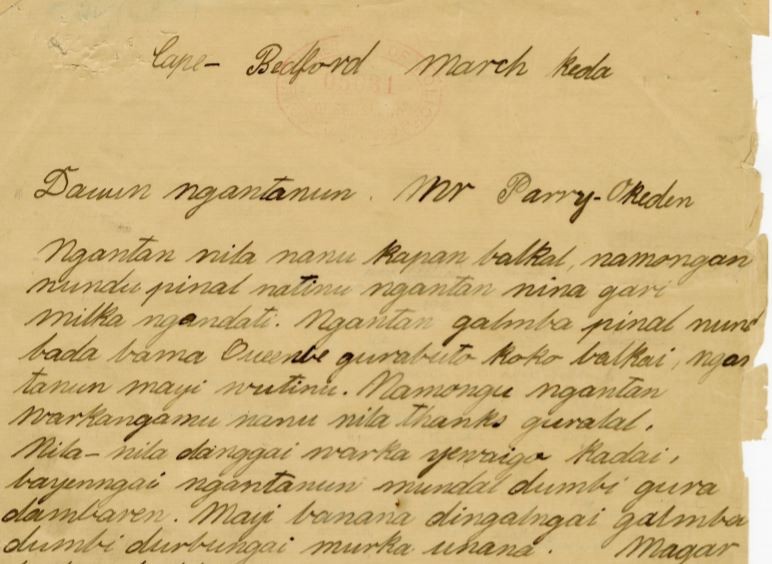
At the end of the exhibition there is a Resource Lounge for visitors to explore the collections and languages in more depth. This space is a quiet area to reflect on the exhibition and the many stories of Queensland languages. The Library Shop also has a selection of merchandise and books from communities featured in Spoken for sale.
On a personal note, I would like to give a warm and heartfelt thanks to the community members and language workers who shared their stories as well as the State Library teams who were able to weave their magic to create the Spoken exhibition. A special thank you to Naomi who guided the curatorial journey and Helen for her production in bringing these stories and words to life!
Desmond Crump
Indigenous Languages Coordinator, State Library of Queensland
State Library of Queensland Aboriginal and Torres Strait Islander Languages Webpages
State Library of Queensland Aboriginal and Torres Strait Islander Languages Map
Jarjum stories: A kuril dhagun showcase focusing on children’s books and Aboriginal and Torres Strait Islander languages. 19 October 2019-10 May 2020.
Spoken: celebrating Queensland languages: A major exhibition exploring the survival and revival of Aboriginal and Torres Strait Islander languages throughout Queensland. Join in the many talks and events to celebrate the rich and diverse languages spoken today. 21 November 2019-19 April 2020.
References and Further Readings
The following is a selection of collection items featured in the Spoken exhibition.
Banks, J. and Beaglehole, J. C. (1962) Endeavour journal of Joseph Banks 1768-1771. J910.910.0461 BAN
Banks, J. and Dalton, J. D. (2011) Journal of the Right Hon. Sir Joseph Banks during Captain Cook's First Voyage in H.M.S. Endeavour in 1768-71. 910.41 BAN 2011
Barlow, H. (1873) "Vocabulary of Aboriginal Dialects of Queensland", The Journal of the Anthropological Institute of Great Britain and Ireland, 1873, Vol.2, pp.165-175.
Cook, J. and Wharton, W.J. L. (1968) Captain Cook's journal during his
first voyage round the world, made in H.M. Bark Endeavour, 1768-71 : a literal transcription of the original mss. / With notes and introduction edited by Captain W.J.L. Wharton. Q 910.4 COO
Devaney, J. (1929) The Vanished Tribes. J A823.2 DEV
Harriet Barlow Manuscript ca. 1865. OM91-69
Journal of the HMS Endeavour, 1768-1771. MS1, National Library of
Australia.
Meston, A. (1895) Queensland Aboriginals: proposed system for their improvement and preservation : addressed to the Honourable Horace Tozer. RBJ 572.89915 MES
OM64-17 Archibald Meston Papers.
OM78-92/4 Charles Wray Finch Papers 1842-1860
OM79-32/17 W Ridley Notebook, 1855.
Petrie, C. C. (1932) Tom Petrie’s Reminiscences of Early Queensland. J 994.32 PET
Phillips, R. (1898) “Vocabulary of Australian Aborigines in the Neighbourhood of Cooktown, North Queensland”. In The Journal of the Anthropological Institute of Great Britain and Ireland, Vol. 27 (1898), pp. 144-147. Online access via One Search.
Ridley, W. (1866) Kamilaroi, Dippil, and Turrubul: languages spoken by Australian aborigines. RBJ 499.15 RID
Ridley, W. (1875) 2nd edn, Kamilaroi and other Australian Languages. Q 499.15 rid
Watson, F. J. (1944) “Vocabularies of four representative tribes of South Eastern Queensland”; supplement to the Journal of the Royal Geographical Society of Australasia (Queensland), No. 34, Vol XLVIII. REFJ 499.15 wat
Comments
Your email address will not be published.
We welcome relevant, respectful comments.